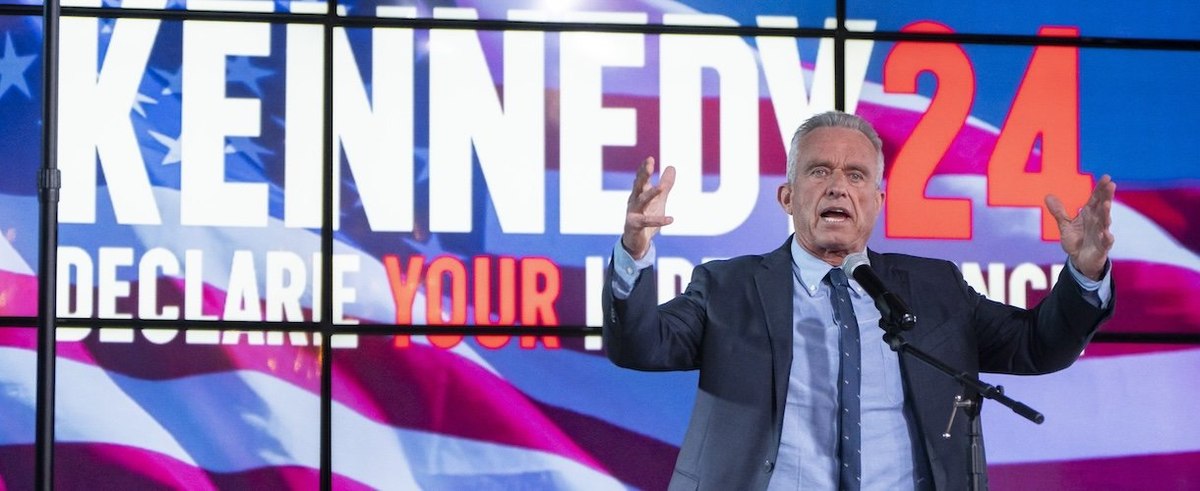Robert F. Kennedy, Jr. could play a critical role in the 2024 presidential election, despite having relatively little overall support. In a close race, even a minor shift in votes to a third-party candidate such as Kennedy could change the final outcome — as long as he is drawing more support from one leading candidate than from the other. So far, it doesn't look like he is.
Kennedy’s chance of winning the presidency is essentially nil, and has not improved much as more Americans hear about him. His net favorability — the difference between the percentage of Americans who have a very or somewhat favorable view of him and the percentage who view him unfavorably — has dropped 25 points from +12 in January to -13 in June. Only a small portion of Americans intend to vote for Kennedy for president. Over the past several months, his support has increased from 2% of registered voters to 4%, but this rise is within the margin of error and far outside the level of a contender.
Despite Kennedy's negligible chance of winning, even a small shift in support toward him could siphon off enough votes to affect Biden’s or Trump’s electoral prospects. That all depends on which candidate Kennedy is drawing more votes from. While we can't know exactly what Kennedy supporters would do if he weren't in the race, we can look at how they voted in the last presidential election. Among registered voters, 44% of RFK Jr.'s support comes from those who voted for Biden in 2020, while 37% comes from those who voted for Trump, according to the last two weeks of the Economist-YouGov Poll. Given the low level of Kennedy's overall support and the nearly equal portion of supporters he appears to draw from both major-party candidates, Kennedy's impact in the race looks unlikely to be as a spoiler.
The distribution of Kennedy's support between Biden and Trump 2020 voters has fluctuated throughout the first half of 2024. At times he was drawing more support from Biden 2020 voters. Earlier, though, his supporters were more closely divided by 2020 vote — and even at times leaned toward Trump 2020 voters.
— David Montgomery and Carl Bialik contributed to this article
See the toplines and crosstabs for the latest Economist/YouGov Poll
Methodology: Respondents for the Economist/YouGov Poll are selected from YouGov’s opt-in panel using sample matching. A random sample (stratified by gender, age, race, education, geographic region, and voter registration) was selected from the 2019 American Community Survey. The sample was weighted according to gender, age, race, education, 2020 election turnout and presidential vote, baseline party identification, and current voter registration status. Demographic weighting targets come from the 2019 American Community Survey. Baseline party identification is the respondent’s most recent answer given prior to November 1, 2022, and is weighted to the estimated distribution at that time (33% Democratic, 31% Republican).
Image: Getty











